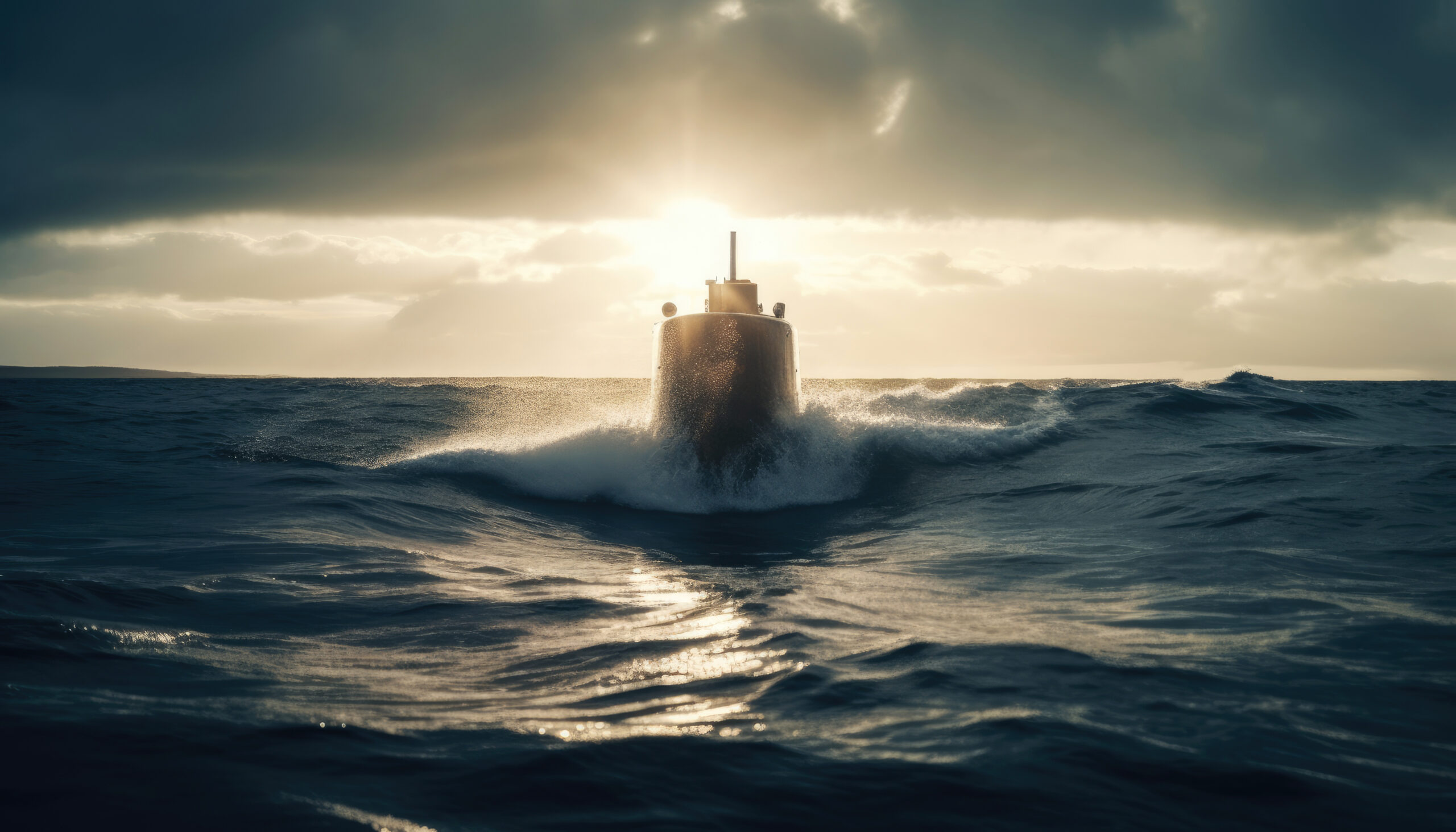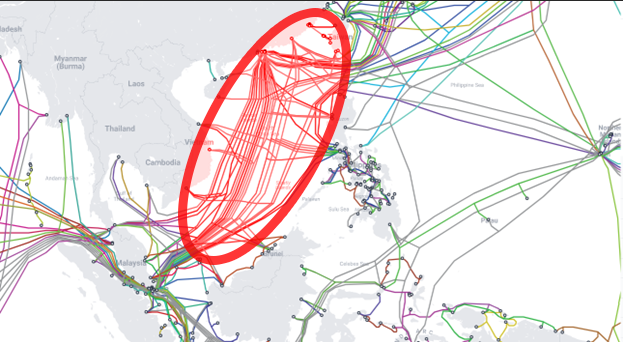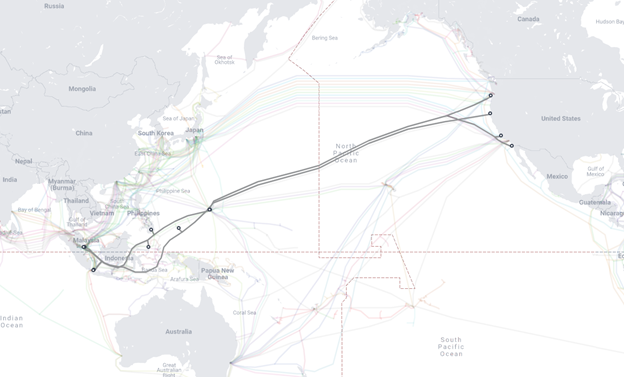It’s a war not many are aware of, but national security and trillions of dollars are at stake. Since the 1940s, China has claimed significant portions of the South China Sea using what has come to be known as the ‘nine-dash line’ map. More recently, Beijing began weaponizing man-made islands in the sea, allowing it to exert greater control over one of the world’s major subsea communications cable highways. This has caused panic in the tech industry and the U.S. military as the subsea cables are vulnerable to sabotage attacks and espionage.
Anna Gross and Alexandra Heal in London, Demetri Sevastopulo in Washington, Kathrin Hille in Taipei, and Mercedes Ruehl of the Financial Times tell their readers that Beijing is imposing strict permit requirements for underwater data infrastructure over spying fears. They write:
China has begun to impede projects to lay and maintain subsea internet cables through the South China Sea, as Beijing seeks to exert more control over the infrastructure transmitting the world’s data.
Long approval delays and stricter Chinese requirements, including permits for work conducted outside its internationally recognised territorial waters, have pushed companies to design routes that avoid the South China Sea, according to multiple sources inside the industry. […]
Several industry sources said China’s policing of its waters — including within maritime areas marked on maps by a disputed “nine-dash line” — is a response to Beijing being excluded from international projects and fears that companies could use cables as a front for espionage. […]
Avoiding waters claimed by China was a “double punishment”, the executive said, because it is more expensive to lay cable along the new route as the shallower waters near Borneo require extra layers of armour around the fibre.
“It means building is longer and costs more,” said a Singapore-based executive for a global technology company. “It is digital infrastructure decoupling.”
Read more here.
Echo and Bifrost Cables to Bipass the South China Sea
Two cables under construction, called Bifrost and Echo, will transport data from Singapore to Japan and the US, avoiding the South China Sea by circling around Indonesia.
Echo is scheduled for completion by late 2023 and Bifrost by late 2024.







